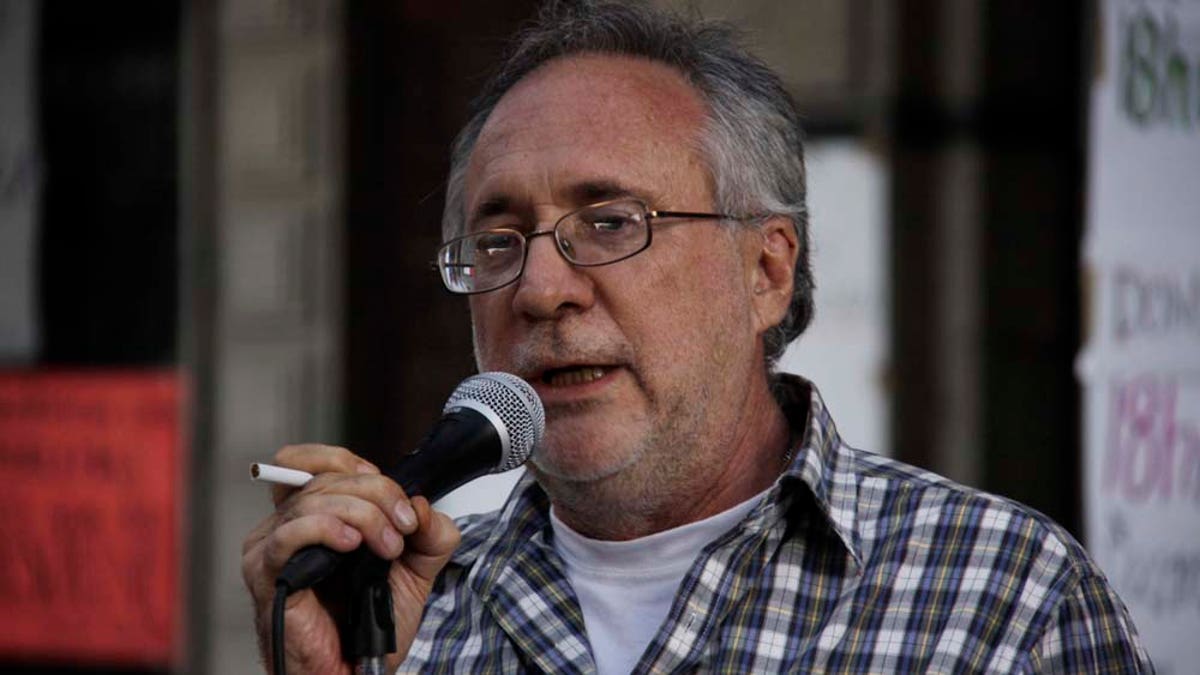
Mexican poet Javier Sicilia reads a poem dedicated to his slain son in downtown Cuernavaca, Mexico, Saturday April 2, 2011. Sicilia's son was found dead inside a car along with six other bodies on March 28 with a warning message left behind. Sicilia says this is the last poem he will ever write because the sorrow from his loss prevents him from further writing. (AP Photo/Antonio Sierra) (AP2011)
Latin American writers play a unique role as public spokespeople, as we recently witnessed when poet Javier Sicilia led an anti-violence march in Mexico City after the murder of his son.
With illiteracy still rampant and dictatorships a sneeze away in many Central and South American countries, writers are expected to respond aggressively to political and social injustices and, of course, to defend the downtrodden—those unable to speak for, or to defend, themselves.
It isn’t surprising that Noble Prize Literature winners as different politically as Octavio Paz (Mexico), Miguel Angel Asturias (Guatemala) and Pablo Neruda (Chile) served their countries as ambassadors. Neruda, a committed Communist, also was elected a senator in his homeland in 1943. Five years, later, of course, he was forced into hiding by a right-wing regime.
And the 2010 Nobel Literature Prize winner Mario Vargas Llosa ran a strong campaign for the Peruvian presidency in 1990, despite a warning from Paz that intellectuals should not run for office.
Europe also has had its literary activists—I’m thinking of playwright Vaclav Havel, the former president of the Czech Republic, and novelist Aleksandr Solzhenitsyn in Russia—but in Latin America, it is imperative that writers be engaged.
Often, they are asked to sign petitions appealing for the release of political prisoners (Cuba), to champion gay marriage (Mexico), to defend women’s rights and protest abortion limits (Argentina, El Salvador), or to support publishers who are the scapegoats of military regimes. In Guatemala, for instance, one publisher was almost imprisoned and fined exorbitantly for using a photograph for which he had previously been given the rights.
These petitions carry great weight and may make presidents quite fearful, especially if major writers like Vargas Llosa, Elena Poniatowska, García Márquez, or José Saramago are among the headlining signers.
In the U.S., writers are great human rights defenders and they battle vigorously for the release of authors badgered or imprisoned by foreign governments (China, Iran) through organizations like PEN American Center.
But in the states, it often feels that they are preaching to the choir—a bit like Bill Maher’s relationship with his HBO audience—and they certainly never run for the public offices where they might effectively institute change.
Unlike their Latin American counterparts, U.S. writers may be daunted by their own insignificance or disheartened by all the glad handling and backroom wheeling and dealing that accepting a consular position or running for office entails.
They may feel, as Ezra Pound once wrote, that though writers are “the antennae of the human race,” they should remain keen observers, but always in the background and aloof. They may aspire to be philosopher kings, offering opinions and solutions wherever they go, but certainly they prefer to be anointed.
Latin American writers have no such luxury and, by definition, must be committed. The resulting engagement may not always be so pretty (Vargas Llosa’s presidential run), but because of the vast disparities in our homelands, there’s no other choice.
David Unger is a Guatemalan-born writer. His most recent novel, The Price of Escape, which is set in Puerto Barrios, Guatemala, in 1938, has just been published by Akashic Books.
Follow us on twitter.com/foxnewslatino
Like us at facebook.com/foxnewslatino
